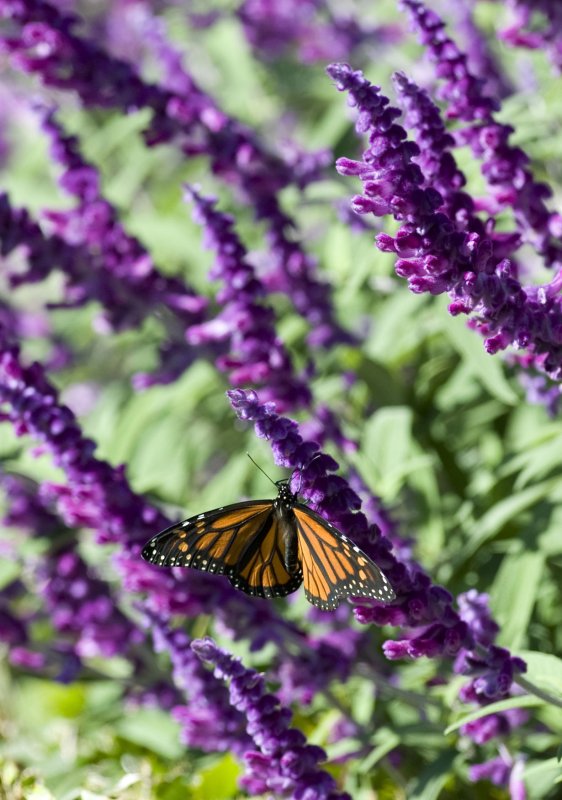A monarch butterfly rests on a flower in the Rose Garden of the White House in Washington October 31, 2008. (UPI Photo/Matthew Cavanaugh/POOL) |
License Photo
KANSAS CITY, Mo., July 27 (UPI) -- Farming practices in the U.S. Midwest may be responsible for a significant decline in the monarch butterfly population, researchers say.
Monarch butterflies lay their eggs on milkweed plants, but the development of genetically modified corn and soybeans that withstand herbicides means farmers have been able to eradicate milkweed from their acreage without damaging their crops.
That leaves the butterflies searching for milkweed on 100 million acres of farmland, researchers say.
Scientists say the loss of milkweed, along with deforestation in Mexico where the butterflies spend their winter, has resulted in monarch numbers being cut in half in recent years, McClatchy Newspapers reported.
"It's clear we've lost an awful lot of habitat, mostly over the last 10 years," said Orley "Chip" Taylor, who heads Monarch Watch, based in Lawrence, Kan.
"The population has declined significantly."
Monarchs are losing habitat in Mexico and the United States at the rate of about 6,000 acres a day, Monarch Watch said.
The group is urging people to plant milkweed, especially on roadsides, and has been in discussions with the Kansas Department of Transportation about including milkweed among seeds put down during re-vegetation efforts.
"We want to discourage the practice of making roadsides look like people's front lawns," Taylor said. "We need a new ethic in approach to a lot of our landscapes."















